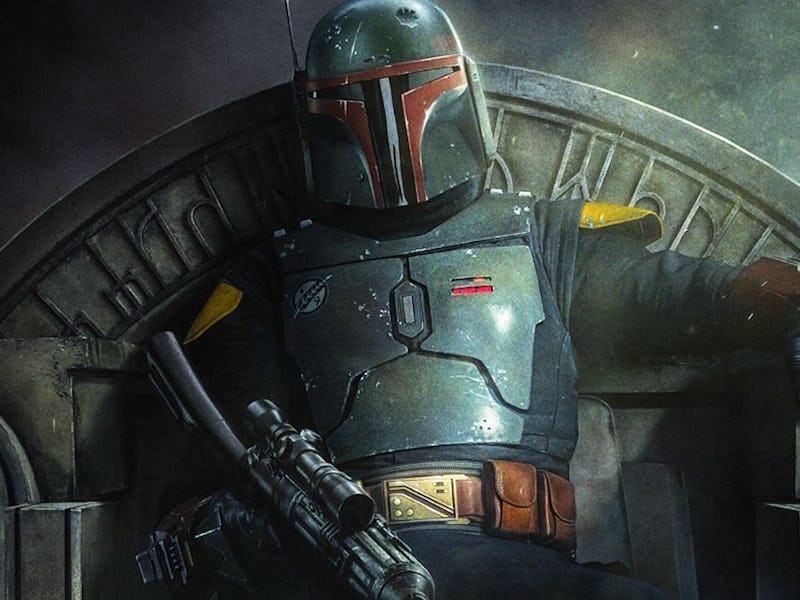Stephen Root’s Boba Fett character reveals a huge Star Wars flaw
Sometimes, corruption is the best form of government.

Politics has always been an undercurrent of Star Wars. The transitions in power between the Republic, Empire, New Republic, and First Order have shaped the entire saga. But on a smaller scale, politics still shape the day-to-day life of the regular people in the Outer Rim.
There’s no better evidence for that than in The Book of Boba Fett Episode 3, which sees a humble character proving exactly how it’s not a lack of government but a lack of power that can throw Tatooine into chaos.
In Episode 3 of The Book of Boba Fett, water broker Lortha Peel, played by the iconic character actor Stephen Root, brings a grievance to Boba, the new daimyo. Lortha explains that since Boba unseated Bib Fortuna, the fragile web of alliances he established in the absence of Jabba the Hutt fell apart, leaving the “streets in chaos.”
Droid 8D8 explains that Jabba’s demise led to a power vacuum, leaving Bib Fortuna to divide the society of Mos Espa among three families. These three families held the city in tenuous peace, but under Boba Fett, there are no alliances. So what exactly is the structure of government in Tatooine? The answer is a lot more complicated than you may think.
Lortha Peel is just a humble water broker trying to keep kids off his lawn.
In a word, Tatooine has a government of necessity. In want of leadership, criminal organizations have become the de facto seat of government, like a mafia state. Yes, there’s a mayor, but even he pays tribute to the daimyo. Jabba, then Bib Fortuna, and now Boba Fett ruled their crime networks at decreasing levels of intimidation. Could Boba Fett reshape Mos Espa into something that resembles an actual structure?
Though it’s far from perfect, the daimyo/crime network type of government is effective in specific circumstances. It’s most similar to a mafia state, where a crime network acts as a secondary (or even primary) government force, collecting “tributes” or protection money in lieu of taxes. It’s just as Boba is told in the flashbacks, “Protection arrangements are all part of doing business in the Outer Rim.”
Speaking of the Tusken Raiders flashbacks, Boba Fett shows his priorities in governing when he negotiates with the Pyke train passenger in Episode 3. When the liaison mentions they’re already paying the speeder bike gang, the Kintan Striders, Boba Fett says the Tuskens have true claim to the land as they are the native people.
The Mayor may have the title, but on Tatooine, the crime networks hold all the power.
Given that exchange, why is Boba so willing to take on the mantle himself? Maybe he’s working to overthrow Mos Espa’s real “government” from the inside, meaning the Tuskens can have control — and reap the rewards of — their land as they deserve.
Meanwhile, Lortha Peel is your typical Tatooine everyman, an Owen Lars-type who is just trying to appease the people in charge, be they the majordomo, mayor, or daimyo. Chaos reigns when there aren’t people in power, and Tatooine isn’t picky about who reigns supreme.
If a government serves the people's will one way or another, doesn’t that ultimately make it effective? If Tatooine’s best times are under the thumb of a criminal organization, why not have a crime syndicate in power? Maybe from the inside, Boba Fett can “rule with respect” and strongarm the mafia state into an actual governing power.
The Book of Boba Fett is now streaming on Disney+.